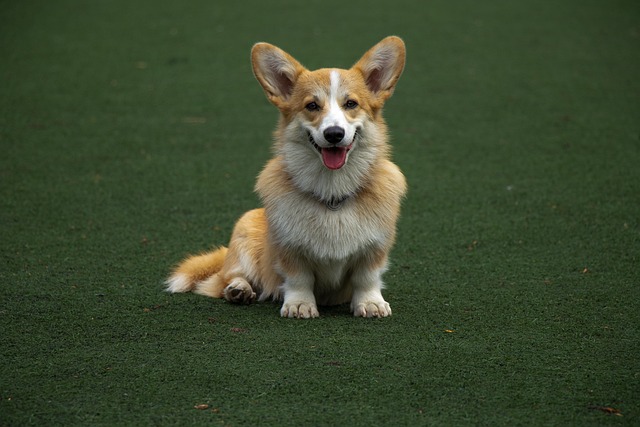
What is glaucoma in a dog?
You might notice your dog squinting more at mealtime or avoiding bright sunlight—these small changes could be early signs of a serious eye condition.
Watching your dog’s a journey filled with wonder, and the final week before whelping is a time of big changes—for both her and you. As her body prepares to welcome puppies, her behavior will shift in subtle and sometimes surprising ways. Understanding these signs helps you support her through this crucial period with calm, confident care.
In the last week, many dogs start nesting. She might rearrange blankets, dig at bedding, or seek out a quiet, secluded spot—this is her instinct to create a safe space for her pups. If you haven’t already, set up a whelping box in a low-traffic area, lined with washable, non-slip materials. Her focus on nesting shows she’s ready to take on motherhood, and your gentle guidance in preparing her space will ease her anxiety.
Appetite changes are common. Some dogs eat less as their growing belly presses against their stomach, while others may snack more frequently but in smaller portions. Offer high-quality, nutrient-dense food tailored for pregnant dogs, and keep fresh water nearby. If she refuses food for more than a day or seems lethargic, contact your vet—while appetite dips are normal, sudden or extreme changes could signal a problem.
You’ll likely notice her seeking more closeness. She may follow you everywhere, lean into your legs, or rest her head on your lap, craving reassurance as her body adjusts. At the same time, she might also retreat briefly, needing moments of solitude to process the physical discomfort. Balance patience with respect for her space—let her lead the way in how she wants to be comforted.
 Body language will clue you into her physical state. Her abdomen will look noticeably larger and lower, and you might see puppies moving beneath her skin. She may pant more often, even when resting, as her heart and lungs work harder to support the litter. Check her rectal temperature daily (a normal drop of 1-2°F below her usual 101-102°F signals labor is approaching within 24 hours).
Body language will clue you into her physical state. Her abdomen will look noticeably larger and lower, and you might see puppies moving beneath her skin. She may pant more often, even when resting, as her heart and lungs work harder to support the litter. Check her rectal temperature daily (a normal drop of 1-2°F below her usual 101-102°F signals labor is approaching within 24 hours).
As the due date nears, she may become restless, pacing or shifting positions frequently. This restlessness is part of her body’s preparation for labor—she’s instinctively ensuring everything is safe and ready. Keep an eye on her breathing: it may become faster and more shallow as the puppies settle into birthing position. Stay calm and present, using a soft voice to reassure her that she’s not alone.
Legally and ethically, this is a time to prioritize veterinary care. In most,responsible breeding includes prenatal checkups, and by the final week, your vet should have confirmed the number of puppies and any potential complications. Ensure you have their contact information handy, along with a plan for emergency care—knowing you’re prepared allows you to focus on supporting your dog without panic.
She may also show signs of nesting even in unexpected places—under furniture, in closets, or near your own bed. While it’s tempting to redirect her to the whelping box, let her explore but gently guide her back to the space you’ve prepared. Positive reinforcement, like praising her when she uses the box, helps her feel secure in her new “den.”
In the days before labor, some dogs experience a burst of energy, while others seem quieter and more introspective. Neither is wrong—every dog’s journey is unique. What matters is that you observe her patterns, celebrate her instincts, and honor the huge role she’s about to step into as a mother.
The final week is a mix of anticipation and tenderness. Your dog relies on you to stay steady, whether that means providing a warm place to rest, a reassuring hand on her shoulder, or simply being near as she navigates these changes. By tuning into her needs and trusting her instincts, you’ll create a safe, loving environment for the miracle of birth—one that strengthens the bond between you and prepares her to welcome her pups with confidence.
As you count down the days, remember: this week is not just about physical changes. It’s a time when your dog’s maternal instincts bloom, and your role as her caregiver deepens. Stay patient, stay observant, and let the love you share guide you both through this beautiful, transformative chapter. Before long, those tiny paws will arrive, and all the waiting will feel worth every moment of wonder.

You might notice your dog squinting more at mealtime or avoiding bright sunlight—these small changes could be early signs of a serious eye condition.

Let’s set the scene: It’s a sweltering Phoenix afternoon—105°F outside—and you rushed your 2-year-old Lab mix, Cooper, on a quick walk to “get it over with.”

Let’s get real: You’re in your Miami apartment, watching your 3-year-old Corgi, Loki, struggle to climb the stairs to your second-floor unit.

Many dog owners brush off occasional scratching as just “dog behavior,” but persistent itching often signals something more—like a food allergy.

You might first notice your dog scratching more than usual—chewing at their paws until the fur looks thin, or rubbing their face against the couch nonstop.

Let’s be real: You’re standing in your Chicago apartment, watching your 3-year-old Beagle, Max, huff and puff just to climb onto the couch.